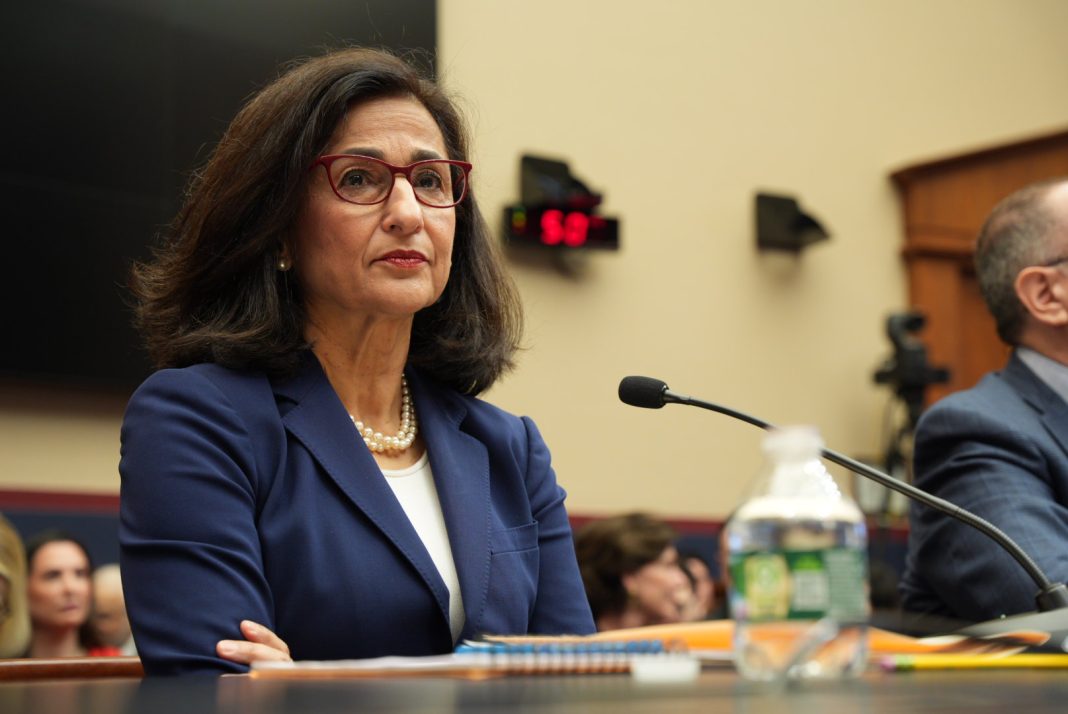Columbia University President Minouche Shafik recently took center stage at a congressional hearing focused on antisemitism on college campuses, following months of heightened tension due to the Israel-Gaza conflict. This conflict has exacerbated political divisions on campuses nationwide, placing Columbia in the crosshairs of Republican lawmakers who criticize college diversity programs and allege suppression of conservative speech.
Over the past four months, following significant political maneuvering by Rep. Elise Stefanik (R-N.Y.), the academic community has seen unprecedented scrutiny and upheaval, resulting in the resignation of several university presidents. These incidents underscore the ongoing challenges and disruptions faced by institutions of higher learning across the United States, with Columbia being a notable example.
The hearing, led by Rep. Virginia Foxx (R-N.C.), aimed to address what she described as severe instances of antisemitic attacks and harassment at Columbia. Shafik, along with other university representatives, testified about their efforts to combat these issues, emphasizing a zero-tolerance stance toward calls for violence or genocide within the university community.
Meanwhile, the broader academic community remains divided. Some faculty members at Columbia and Barnard College have expressed concerns that the hearings might be used to further political agendas rather than genuinely address the safety and well-being of Jewish students. They fear that the emphasis on antisemitism could be leveraged to paint universities as breeding grounds for ‘woke indoctrination.’
Critics from the American Council on Education and other educational advocates view these congressional actions as potentially performative, doubting their effectiveness in changing campus climates or improving student safety. They argue that these high-profile hearings may not lead to substantial policy changes or solutions.
Amid these tensions, there have been physical confrontations on campuses like the University of California, Berkeley, where disagreements over the Israeli-Palestinian conflict have escalated dramatically. Similar disturbances have occurred at Pomona College, highlighting the volatile environment that administrators and students navigate daily.
As Congress continues to focus on these issues, with the House Education Committee conducting investigations into multiple universities, the academic world watches closely. The Anti-Defamation League and other organizations stress the importance of addressing antisemitism comprehensively, regardless of the political motivations that may underlie congressional scrutiny.
This heightened attention from lawmakers has led to increased awareness and pressures on university administrators to address antisemitism and other forms of hate more effectively. Former Assistant Education Secretary Ken Marcus notes that these developments have made it difficult for administrators to dismiss or downplay these concerns, prompting some to take action, although he believes much more remains to be done.
The situation at Columbia University serves as a microcosm of the broader challenges facing higher education in America today. As lawmakers, educators, and students grapple with these complex issues, the path forward remains uncertain, with calls for substantive policy changes and a more nuanced understanding of the intersection between free speech and campus safety.

